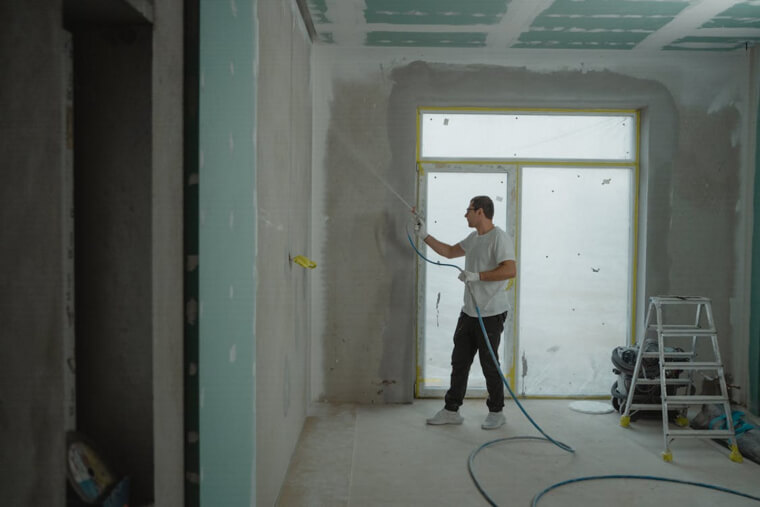Your Retirement Is for Relaxation
After working hard most of your life, you deserve to retire in comfort. However, living on a limited, fixed income means you have to keep track of every dollar you spend. Here are a few mistakes that retirees make that can lead them to bankruptcy.
Indulging in Retail Therapy
When you have unlimited free time, indulging in some “retail therapy”, as the kids call it, doesn’t seem so bad. However, it is important to realize that going on impulsive spending sprees and buying things that you ultimately don’t need is a waste of money that most retirees simply can’t afford.
Investing in High-Risk Assets
As a rule, the older you are, the less high-risk investments you should take on. Investing in highly speculative stocks, or something like cryptocurrency, after retirement, puts your entire retirement savings at risk. This is because if you incur losses, you won’t have a steady income to cover them.
Spending Too Much on Charity
Generosity is a virtue that must be cherished, but it should not come at the cost of your savings. Setting a budget for donations and pledges is a good way to walk the fine line between generosity and overspending.
Not Managing Tax Liability
Everyone prepares for budgeting, retirement savings, and 401(k) contributions, but no one warns you about tax planning post-retirement. Most income is taxable, even after retirement, but certain accounts and funds can help minimise your tax liability. Researching and investing in such funds can give you more disposable income.
Owning More Than One Car
Unless you collect cars as a hobby (and can afford to do so), you should consider downsizing to just one car. Post-retirement, most people hardly use one car, so having (and maintaining) more would be a waste of money and time.
Not Deal Hunting
From restaurants and museums to airlines and hotels, many businesses offer considerable discounts to seniors. Yes, finding them requires some amount of research. You’ll have to look through websites, blogs, or call around. But, ultimately, it will help you save as much money as possible.
Not Making Health a Priority
What many seniors don’t realise is that healthy food and gym memberships cost less than hospital stays. If you focus on your health from the get-go, you’ll stay healthier for longer and can (hopefully) avoid the costs associated with long-term medical care for preventable diseases.
Continuing to Live in a Large House
Not wanting to leave behind the home you’ve built, which is full of warm memories from your life and the lives of your children (and maybe even grandchildren), is understandable. However, the larger the home, the higher the costs of maintaining it. If you don’t downsize on time, it can eat into your retirement savings.
Not Checking in on Investments
As stated earlier, as you age, you need to minimise risk in your investments. Regularly assessing your portfolio is part of the process of minimising that risk. It’s prudent to check the performance of your investments once every month to ensure that they’re worth the risk.
Buying Expensive Cars
As mentioned earlier, most people only need one car in their retirement, and that car doesn’t need to be a Lamborghini. When buying a car for your retirement, cost, ease of maintenance, and durability should be at the front of your mind, not luxury.
Owning More Than One Home
Owning a large, unmaintainable home is bad enough; owning multiple homes can wreck your finances. While real estate is a sound investment when you’re working, after retirement, maintenance fees, property taxes, and other legal fees can become too much to keep up with.
Not Trying to Save on Utilities
It's never too late to ask your cellphone, internet, and cable providers if they offer discounts for seniors. T-Mobile and Sprint both have exclusive plans for members above 55, and so do many other carriers. Even if you are already on a contract, calling and checking with customer support can’t hurt.
Withdrawing Pensions at Once
Cashing out your pension early and getting a huge lump sum at the start of your retirement can sound tempting, but it can cost you your future gains. Not cashing out gives you interest earnings and prevents your pension from being spent frivolously.
Putting Money in Long-Term Investments
Retirement is the time to cash in on previous investments, not to make brand new ones. Most investment tools have a long return timeline, which is manageable for young investors, but isn’t something many older adults can afford.
Not Being Able to Separate 'Wants' From 'Needs'
Fulfilling every need is a necessity. Fulfilling every want can become a waste. Every time you’re about to make a purchase, ask yourself this: Will my life improve or worsen if I make this purchase, or will it stay the same? And if it will improve, is the improvement worth the cost?
Cashing in on Social Security Too Early
Early in your retirement, if you can get by using your retirement savings alone, it’s best to put off collecting Social Security. Cashing in on benefits later on increases your monthly payout, giving you more money to spend in the future.
Undertaking Expensive Home Remodels
Of course, this doesn’t mean that you should not upgrade your home. Necessary fixes and upgrades to make your home more comfortable as you age shouldn’t be put off. But be sure not to put too much money into flashy cosmetic upgrades that you can do without.
Not Preparing for Long-Term Care
Even if you maintain a healthy lifestyle, age will take a toll on you. Getting supplemental Medicare and long-term care insurance gives you a solid financial umbrella if things start going down for you medically. You don’t know when things can go wrong, so being prepared is the least you can do
Paying Unnecessarily High Insurance Premiums
Like many other businesses, some insurance companies offer discounts to retirees. Make sure you’re getting the best deals on all your insurance policies, whether it is auto, home, or life insurance. Overpaying on necessary insurance policies is one of the easiest ways to lose money.
Putting Everything on a Credit Card
While credit card debt is dangerous for most adults, it can be destructive to retirees. Putting everyday expenses on a credit card can quickly become a habit, and you can end up losing track of your expenses.
Moving to a Bigger Home
Some people, rather than downsizing, choose to upgrade their home right before retirement. While this could be a workable strategy for the ultra-wealthy, for most normal people, this is just a money pit. Upgrading to a larger home when you don’t need the space can put a strain on you physically and financially.
Paying for Adult Children
While helping your kids out once in a while when they’re in a tough spot isn’t an issue, the problem arises when supporting them turns into sustaining them. Everyone loves their children, but if they’re dependent on you well into adulthood, cutting them off might do both of you some good.
Not Recognising Scams
Falling for a scam might not be a choice, but it’s definitely an avoidable problem. Today, telecaller scams are incredibly common, so stay up-to-date on how they operate and never give out your personal information (especially your banking information) to anyone over the phone.
Having Unnecessary Insurance Policies
Things like disability insurance become unnecessary once you’ve phased out of the workforce, so continuing to pay for them only drains your finances. When you retire, go through all the insurances you have and cancel any policies you no longer need.
Eating Out Regularly
Eating out feels good once in a while as a treat, but when it becomes a habit, it hurts your health and your finances. Cooking is not only a way to save money but also to manage your caloric and nutrient intake.
Having Hobbies That Are Too Expensive
Golf, scuba diving, yacht racing, and high-end collectibles are all things that can give you a sense of community and a strong group of friends, but they can also blow through your retirement savings in a jiffy. Hobbies don’t have to be expensive to give you joy.
Taking up Entrepreneurship
Retirement is the time to relax, not to take on more work. And that is aside from the financial risk of starting up a new business. If you have a limited retirement fund, putting it on the line for a business venture that may or may not succeed is not wise.
Paying a Financial Advisor Too Much
A financial advisor is a great asset to have when you’re planning your retirement savings, but make sure you’re not overpaying them. Usually, an advisor’s fee is between 1-2% of the value of your assets.
Not Understanding Their Social Security Benefits
While many know that retirement social security benefits exist, a lot of people don’t know the extent of them. For instance, if one spouse above the age of 65 unfortunately passes away, their spouse can collect their benefit checks, even if they’re still working. So, make sure you know what benefits you qualify for.






























